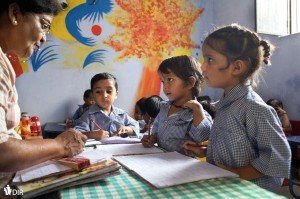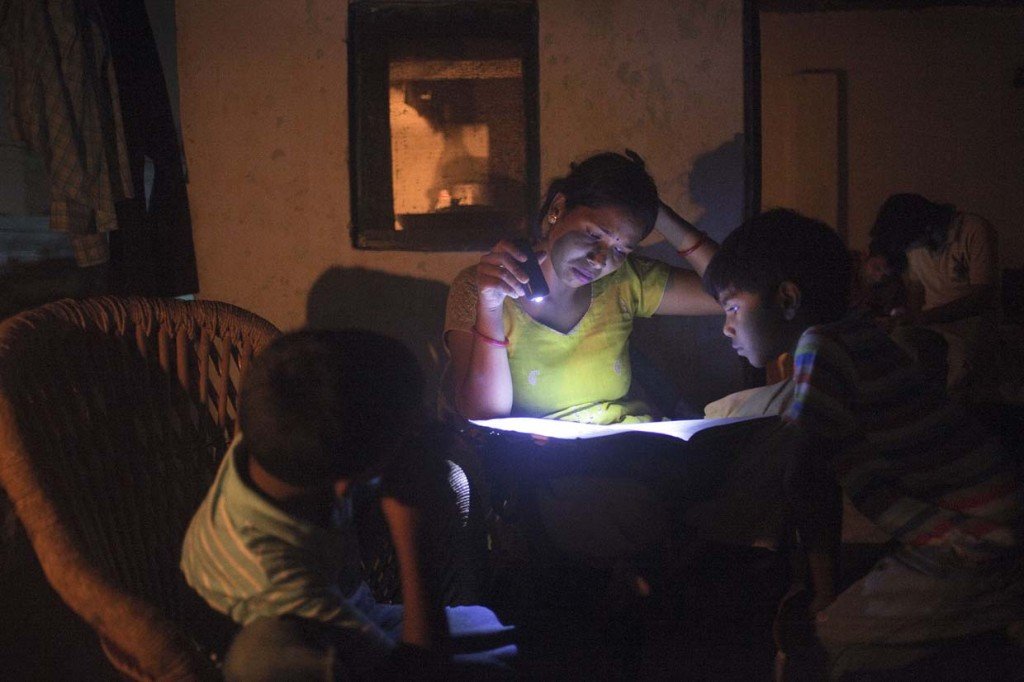Providing Education

The challenge
Lack of education is perhaps the single most influential factor that condemns a community to live in poverty. As in many Indian slums, adult illiteracy is common in Janta Colony; many of the residents have migrated from remote rural villages. This deprives people of basic knowledge of hygiene, disease prevention and nutrition that can radically improve their family’s health and influence their economic and social situations.
Most parents recognize the value of learning and place high priority on sending their children to school. But they are unable to assess the quality of teaching or to assist their children with homework. In fact, after school chores and lack of access to light for studying make it particularly difficult for slum children to complete homework and keep pace with their fellow students.
Actions taken
DIR’s School with a Difference, opened in 2008, prepares basti children of kindergarten age (3 – 5 years) to pass an annual exam that will qualify them to attend an English medium school in Chandigarh. The education program covers written and oral Hindi and English, mathematics, and creative activities.

With small class sizes, DIR’s School with a Difference offers personal attention to students.
Results
Enrollment in DIR’s School with a Difference climbed dramatically from 27 students in the first year to a peak of 130 in 2010. During this period, XX of students subsequently received scholarships for English medium schools.
Finding the next solutions
DIR’s education initiatives still face substantial obstacles, as do the individual students. The need to commute to city schools means that Janta Colony children must be on the road early. DIR assists with transport by providing a van, with fees calculated to cover only the costs of fuel (DIR’s policy is to provide services at cost, not to give hand-outs).

Evening study time is often interrupted by power cuts, which may last a few minutes or all night.
More troubling is a systemic barrier. While the Indian government has set quotas to reserve classroom seats for low-income children, individual schools have established protocols that seek to circumvent the education policy, such as stipulating that students must live within a certain radius of the school. As a result, DIR has found it more difficult to secure placements and Janta Colony residents have more difficulty justifying the cost of sending their children to the SWAD, rather than the free government schools in the basti.
Enrollment at the SWAD fell in 2012 and 2013, after DIR had trouble securing places for students from the 2011 and 2012 classes.
